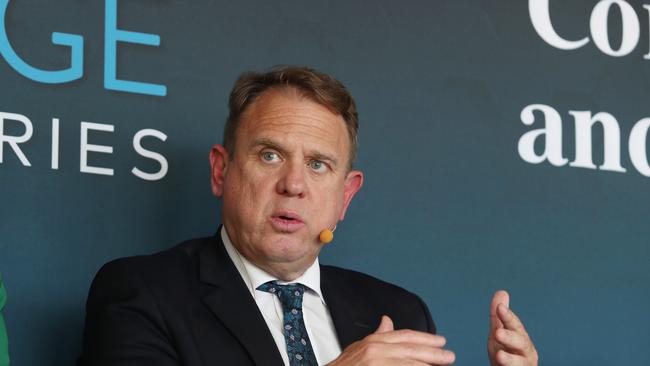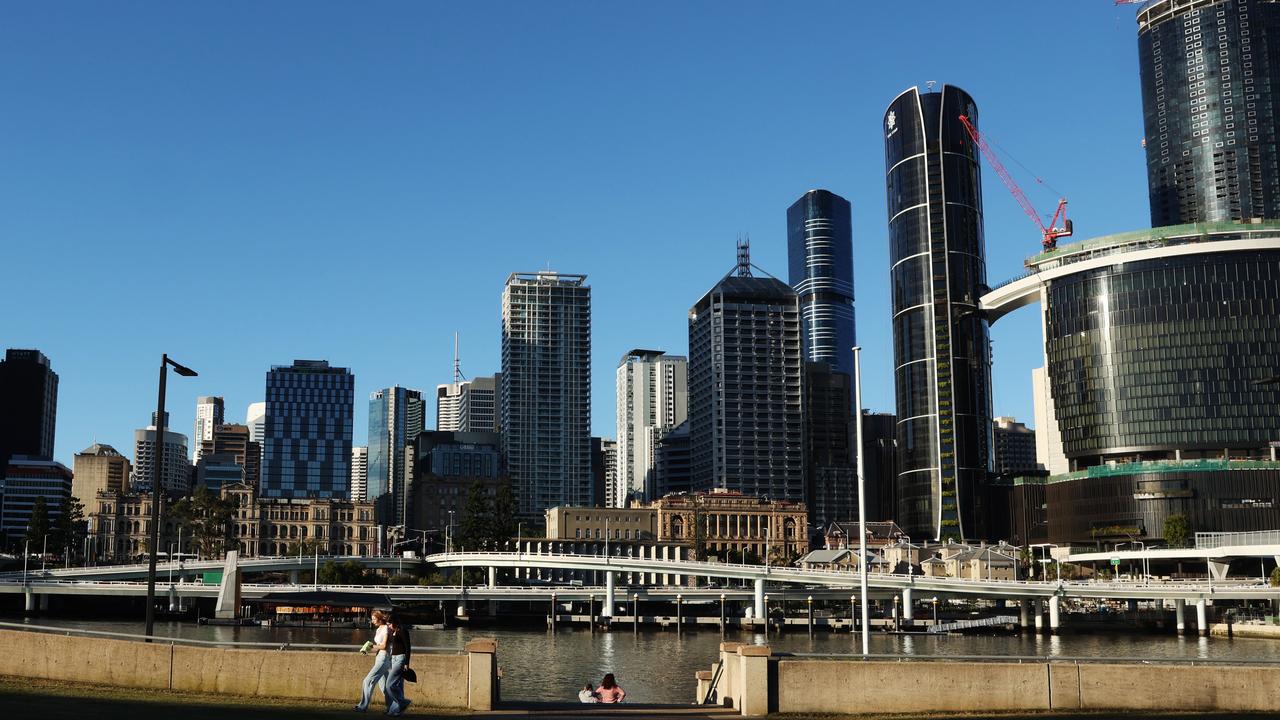Density important for cities of the future, Lendlease chief tells forum
Cities must have a variety of accommodation such as affordable housing, essential worker housing, built-to-rent accommodation, and student housing, the Lendlease Australia boss says.

Australians would need to accept a higher level of density in their cities if they wanted to solve the housing crisis, Lendlease Australia chief executive Dale Connor has warned.
“We need to accept that density is OK,” he told The Australian’s Competitive Advantage Forum in Sydney on Wednesday.
He said cities in Australia were the great drivers of economic growth, contributing 70 per cent to the country’s GDP noting that great cities of the world all had more density of development, but also had diversity in their housing.
“I don’t think density is a dirty word,” he said.
There could be “desirable density” around transport zones and economic zones around places like hospitals and universities.
“What they can contribute is talent, places for new talent to go and be able to create new environments and precincts which can contribute to the growth of cities in Australia,” Mr Connor said.
He said cities needed to include a variety of housing including affordable housing, essential worker housing, built-to-rent accommodation and student housing.
If done correctly, Mr Connor he said, these could be seen as being “embedded” in the city.
“More housing in our cities close to transport links, education precincts and jobs will keep talent in our cities, and drive innovation and competitiveness.
“Great cities with a diversity of housing create thriving precincts.”
But he warned that the big issue facing the construction industry at the moment was the delays in getting approvals for new projects including housing.
“Planning is an issue affecting our competitiveness,” he said.
Mr Connor said the Salesforce Tower at Circular Quay in Sydney had taken 3½ years to build but it took four years of planning before construction could start.
“We are looking at some apartments in Melbourne which have taken four years before we could start pouring concrete,” he said.
“They will take two years to pour concrete. We need to get to the start line quicker through planning – be it at a council level, a state level or a federal level – and accept that density is OK.”
Mr Connor said this would improve the supply side and the affordability of housing.
However, BetaShares chief economist David Bassanese warned Australia should not seek to be like South Korea and crowd cities with-high rise buildings.
He said housing prices in Australia relative to income were much higher than in many other countries.
Foreign observers, including hedge funds, had looked at the Australian housing market in the past describing it as a bubble that would inevitably blow up – but it never did. Mr Bassanese said Australia was very structurally expensive because it was highly urbanised with a larger percentage of people living in major cities than other countries like the US.
“We are not South Korea,” he said. “We don’t build 30-storey apartment blocks in the CBD,” he said. “The solution is you either agree to high density and many councils don’t want to do that – – or you build elsewhere.”
Decentralisation was another way to help ease the housing shortage. “We could be trying to develop other regional towns like Wollongong or Darwin and decentralising,” he said.
There was a lot of time wasted in Australia blaming the housing crisis on taxation, adding house prices in the US were relatively lower than in Australia as that country had a lot more diverse population. “They are not all concentrated in Los Angeles,” he said. “That is the fundamental problem – either we become a South Korea and accept the high rises, or we decentralise.”



